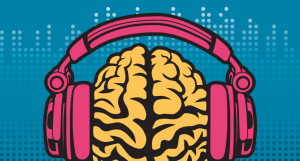Parents, teachers, and most authoritative figures always generalize certain types of music and make it seem like that certain genre is effecting you. Just to name a few; rap, heavy metal, and techno music are always heavily criticized. Most people around my age are curious about whether specific genres of music affects intelligence since elders always try to influence their decision on what kind of music they listen to. Various studies have been made to analyze this debated topic. Music plays a role in everyone’s life, and I did some research to figure out whether it is possible to negatively or positively affect the human mind.
Virgil Griffith, who infamously created the Wikipedia scanner dove into another study. This study analyzes college students and their taste in music and their result on standardized testing. To create the chart he searched certain students and the colleges they attended while delving deeper into the study to examine their favorite artists. Using their favorite artist and the current institution they were at, he used the average SAT score of that school to determine the solution. Interestingly enough, authoritative figures were correct. Students who shared a high interest in Rapper Lil Wayne, scored the lowest on the SAT’s. While students who listened to Beethoven scored the highest in their testing. But, there were also surprises in the study. Students who listen to techno music scored the highest in the field. But, with all this information and such a broad study there is still no answer to why this occurs.
The study Virgil Griffith uses include various gray areas. Just because those students have those specific artists on their page, that does not mean those were their favorite artists at the time while taking the SAT. Also, he is using the average score of the college, not the score of the student that they earned. Griffith is using generalized information to make an inference. The information he uses does not create a conclusion either. Griffith found a shortcut and took advantage of it.
Researcher Francis Rauscher found a logical answer. He found music stimulates thought processes and expands spatial reasoning. Spatial reasoning is a skill to think about a topic in a larger capacity, specifically in three dimensions. Studies show that pre-schoolers who participate in music organized clubs, groups, or events have greater spatial reasoning compared to the average student. This study does not give us the answer to specific music and how it affects certain people to others, but it shows that music is an advantage in preparation to the classroom. Researchers research and Griffith’s research also tie a point together: those who experience classical music have an easier time when it pertains to school work.
There will never be a day of life where a human being does not experience music. According to studies, that is a good observation to make. It may be complicated to decipher which music enhances one’s learning skills, but we do know now that it is beneficial in a learning environment. I would recommend listening to Beethoven’s finest hits next time you study.
Sources:
http://eric.ed.gov/?id=EJ509229
http://www.labnol.org/internet/music-taste-linked-to-intelligence/7489/
URL Link: http://www.scienceworld.ca/your-brain-music
http://genius.com/albums/J-cole/Friday-night-lights



http://musicandspeech.voices.wooster.edu/listening-to-music-while-studying-helpful-or-hurtful/ In terms of my music taste, my iPod looks like a schizophrenic jukebox. I tend to jump randomly and frantically between different styles of music, as if my brain is just stumbling through a vague array of therapies to help it pull through working. I’ve found that if I actively try to stick to a genre, my productivity suffers, and instead a randomized playlist lets me feel ‘loose’ and comfortably engaging in my work.